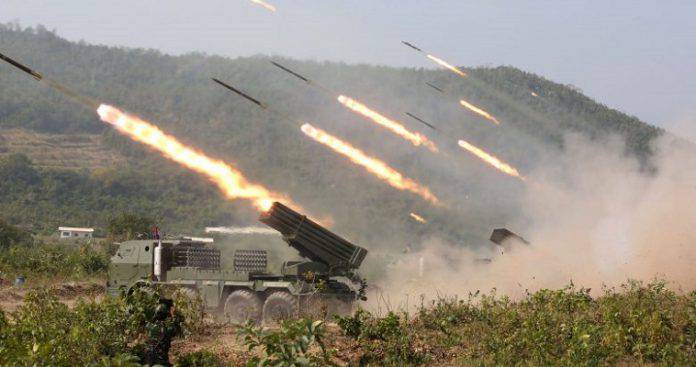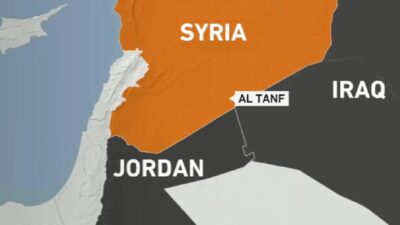Stavros Lygeros: What really applies concerning demilitarization – “Hic Rhodus …” Mr. Mitsotakis
28/09/2020
It is a given that Ankara will ask for the demilitarization of the islands of the eastern Aegean in the upcoming Greek-Turkish negotiations. It was officially pronounced by Turkish lips, in order to dispel any doubt, through a relevant decision taken by the National Security Council chaired by Erdogan.
In recent days, there have been reports that pressure is being exerted on Athens from both Berlin and Washington to accept “partial demilitarization”. According to the same information, in fact, Pompeo will voice a relevant blackmail in order to achieve the withdrawal of American weapon systems from the Greek islands.
It was preceded by a statement from the US Secretary of State that “we must reduce the military footprint everywhere and we must use diplomatic means, not military.” This statement, combined with the fact that the government remained silent for days, fueled reports, forcing Ambassador Pyatt to refute via Twitter: “America does not make such proposals (for demilitarization). A secure and strong Greece is in the interest of America.” Shortly afterwards, the Greek government spokesman stated that there was no question of demilitarization.
At this point it is useful to emphasize that this is not the first time that Ankara has raised the issue of demilitarization of the Greek islands. After the crisis in Imia (1996), the Americans had put on the table the proposal for Greece to demilitarize the islands, leaving there only the forces provided for by the Treaties of Lausanne (1923 for the Northeast Aegean) and Paris (1947 for the Dodecanese). In return, the Turks would withdraw the Aegean Army inland and their amphibious fleet from the coasts of Asia Minor.
The obvious trap
Although, at the time, the well-known circles in Athens were willingly discussing this proposal, the trap was too obvious to be accepted by the government. It is clear that in the event of a crisis, Turkish ground forces and the amphibious fleet could return in 24 hours, while re-equipping the islands would take months, if at all possible.
Thus, a second proposal had fallen on the diplomatic background. At that time, Greece had proposed the referral to The Hague on the one hand of the issue of the delimitation of the continental shelf, on the other hand of the sovereignty of Imia. In order to facilitate the adoption of the proposal by the Turks, in fact, Athens had released the EU financial protocol for Turkey, which until then had been blocked.
The Turks, however, had other plans. Their aim was to refer the demilitarization of the islands to The Hague. They wanted to take advantage of Greece’s rather weak legal position on the issue, in order to put the islands under hostage status and consequently to be able to effectively blackmail Athens. Even if demilitarization went hand in hand with Imia and the demarcation of the continental shelf, Ankara estimated (not unfoundedly) that it would lose the minor issue and gain the major, namely demilitarization.
What the conditions provide
At this point a parenthesis is necessary. The Treaty of Lausanne stipulates that in the islands of the northeastern Aegean there can only be forces from local conscripts. The Treaty of Paris provides for the Dodecanese to have internal security forces, not an army. These commitments were imposed because the Turks had argued that the islands could be used by Greece as a base for invasion of Asia Minor. Today this claim can only cause laughter.
Until 1974, Greece respected the conditions. After 1974, the Turkish threat became specific not only because of the invasion of Cyprus, but also because in 1975 the Aegean army was established in Smyrna, targeting the Greek islands. Thus, Greece was forced to fortify them. Its legal argument is Article 51 of the UN Charter, which takes precedence over the treaties and which guarantees the right of defense of every state. Nevertheless, no one can discount the ruling of the International Court of Justice.
A Hague package and demilitarization
The Greek side had and still has the legal right to refuse to refer this issue, because it has not recognized jurisdiction over defense issues in the International Court of Justice. Politically, however, it had found itself at a disadvantage, because Athens itself had from very early on reduced The Hague to a central diplomatic tool for resolving the Greek-Turkish conflict.
This has been evident since the Americans in the 1990s adopted the Turkish demand and pressed the then Foreign Minister Pangalos to recognize The Hague’s jurisdiction over defense issues, or start a comprehensive negotiation concerning the Aegean. When Pangalos refused, Washington had officially requested that all “territorial disputes” be referred to The Hague!
The then Turkish Foreign Minister Ismail Cem had justifiably stated that she “the State Department announcement is approaching the Turkish positions”, adding with obvious satisfaction that this had caused a shock in Athens. And yet, that development was no surprise. Since the spring of 1996, I have repeatedly written in Kathimerini and Ependytis that Washington would promote the package formula, that is, referral to The Hague of all the issues raised by both sides, transforming The Hague. Into a boomerang for Greek diplomacy.
Demilitarization and “offensive” weapons
That was the situation then. Are things exactly the same today? The answer is no. The Turks may still raise the issue of demilitarization, but they know that no Greek government can disarm the islands. Why do they raise the issue then? They raised it not so much to get some exchange elsewhere, but because they hope that under the state of fear the Greek government is silently withdrawing “offensive” weapons, ie weapons systems that can hit targets on the Turkish coast zone from the islands.
Above all, however, they raised the issue to prevent the islands from turning into what they can be transformed into: a chain of bases of “smart” missile systems (ground-to-ground, ground-to-air, and ground-to-sea), which will really provise much more effective deterrence. This is because they will be able to control the sea and air of the Aegean to a large extent, but also to accurately strike vital targets at great depth in western Turkey, if not further east.
This is the potential nightmare of the Turks at the military level. Even if in a conflict they managed to land one or two Greek islands, the military and financial costs they would pay would be many times higher. In other words, the Greek deterrent strategy would gain a much more credible basis. Ankara would be forced to abandon its bullying, through which it promotes its unilateral expansionist claims against Greece.
Reducing the military footprint
This is where Washington and Berlin come in. Ambassador Pyatt, like the German ambassador to Athens, does not lie when he states that their governments are not pressuring Greece to demilitarize the islands. According to credible information, however, it is being pressured to commit to withdrawing “offensive” weapons or at least not installing “smart” missile systems on the islands, as imposed by basic military and political logic, in order to make the Greek deterrent strategy compact, credible and ultimately effective.
This was the meaning of Pompeo’s statement on reducing the military footprint. The relevant statements by partners and allies have the same meaning. That is why the statement of the government representative that there is no question of demilitarization is not enough. The Prime Minister’s verbal statement that would really reassure is that Greece is not going to make any commitment to either Turkey or the US, NATO, and the EU regarding the defense of the islands. “Hic Rhodus, hic salta, or more colloquially: Let’s see if you can put your money where your mouth is” Mr. Mitsotakis.





